Resources
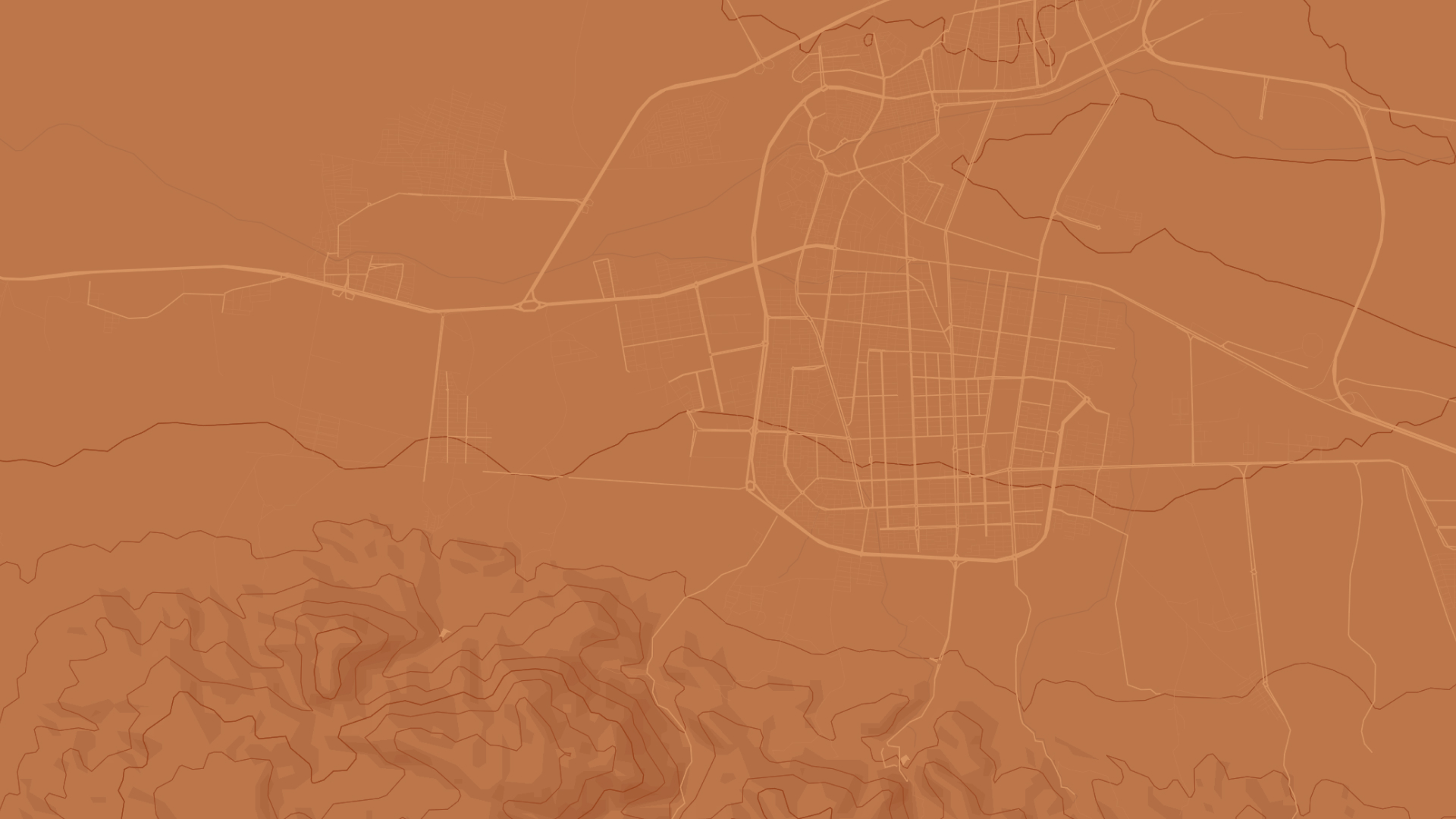
A growing library of downloadable global and regional content to support methane mitigation planning.
A Playbook for Municipal Solid Waste Methane Mitigation: Recommendations Based on Global Waste Management Archetypes (2 Files)
This playbook establishes four municipal solid waste management archetypes across the globe (Build the Basics, Build the Basics Plus, Move up the Hierarchy, and Close the Circle) and provides tailored methane abatement strategies for each archetype. It aims to serve as a starting point for countries to further customize mitigation solutions to reflect their unique local context.
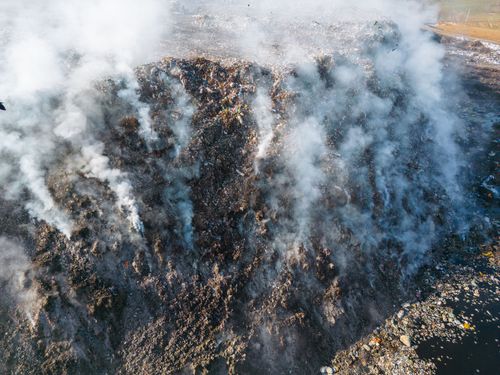
Mitigating Methane Emissions from Municipal Solid Waste: A Playbook for Lagos, Nigeria (1 FILE)
This playbook provides concrete, actionable strategies to reduce methane emissions from municipal solid waste in Lagos, Nigeria. These strategies are based on the Build the Basics archetype defined in RMI's global playbook which characterizes Nigeria’s municipal solid waste management practices, and cover waste generation, collection and transport, recovery and treatment, and disposal. The strategies also include a crosscutting component that explores opportunities to enhance the policy and regulatory framework, emissions transparency, access to finance, and improve stakeholder awareness and capacity building.
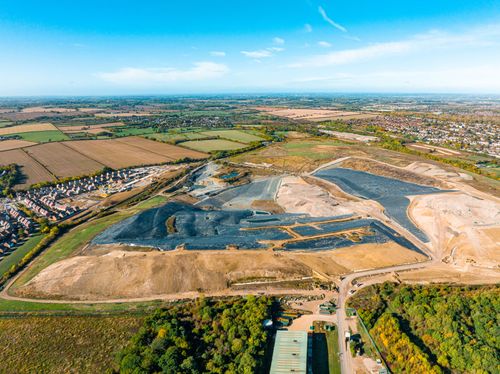
Deploying Advanced Monitoring Technologies at US Landfills: How Landfill Operators and Municipalities Can Leverage New Tools to Reduce Methane Emissions and Deliver Powerful Benefits (1 FILE)
This playbook is intended to provide an overview of strategies to monitor and mitigate emissions that may be appropriate for US landfill operators to consider based on their evaluation of site-specific, technological, and operational conditions. The playbook also contains some case studies and highlights the community and economic benefits of reducing methane emissions.
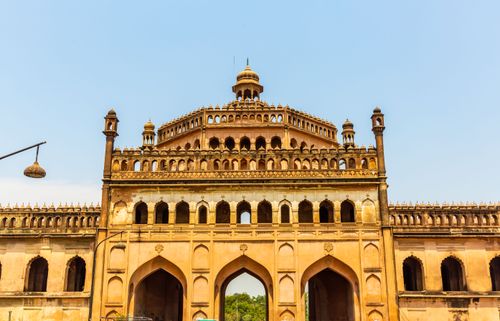
Sustainable Organic Waste Management: A Playbook for Lucknow, India (1 FILE)
This playbook provides concrete, actionable strategies to improve the management of organic waste from municipal solid waste in Lucknow, India. These strategies are based on the Build the Basics Plus archetype defined in RMI's global playbook which characterizes India’s municipal solid waste management practices, and cover waste generation, collection and transport, recovery and treatment, and disposal. The strategies also include a crosscutting component that explores opportunities to enhance the policy and regulatory framework, data transparency, access to finance, and improve stakeholder awareness and capacity building.
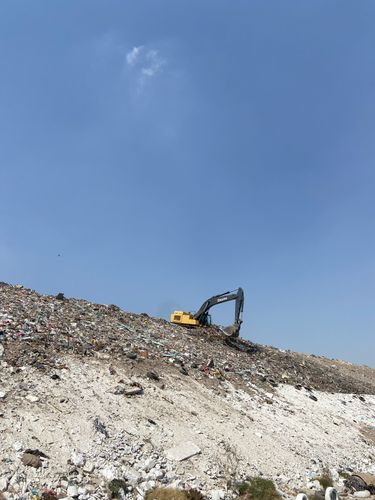
Mexican Waste Sector Methane Analysis (1 FILE)
The waste sector in Mexico accounts for 29% of the country’s methane emissions, nearly half of which come from solid waste. In 2022, municipal waste generation reached approximately 47 million metric tons, with 46% classified as organic waste. This indicates significant untapped potential for methane mitigation. Mexico has intricate policy and regulatory frameworks governing solid waste and greenhouse gas emissions, which outline obligations, responsibilities, and mitigation targets. However, these regulations need to be strengthened to ensure effective management and treatment of organic waste. This report assesses solid waste management and methane emissions in Mexico, covering key stakeholders, regulations and policies, as well as sectoral data. It focuses on identifying the barriers the country faces and exploring known solutions that will not only enhance waste management but also reduce methane emissions.
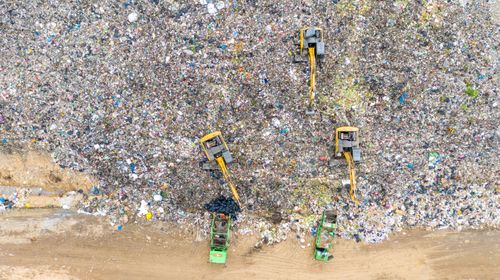
Colombian Waste Sector Methane Analysis (1 FILE)
Colombia has seen significant progress in upgrading its waste management system in recent decades. The country has high collection rates, sends most waste to engineered disposal sites, and has developed a sustainable funding mechanism through its waste tariff. Now, Colombia has the opportunity to build on these successes by reducing the climate impacts of its waste management system. With municipal waste generation of more than 14 million metric tons in 2021 and methane emissions from solid waste disposal of more than 380,000 metric tons, there is significant mitigation potential. This report assesses waste management in Colombia, with a focus on solutions that are known to improve waste management practices and abate methane from this critical sector.
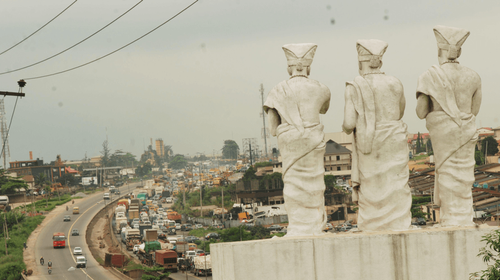
Overcoming Regulatory Barriers to Closing Dumpsites and Implementing Sanitary Landfills in Lagos, Nigeria: Key Policy Recommendations to Safeguard Human and Environmental Health and Support Methane Mitigation (1 FILE)
This report provides recommendations to help Lagos, Nigeria create an enabling policy and regulatory environment for transitioning its waste disposal systems from dumpsites to sanitary landfills. It aims to guide policymakers and regulatory agencies in developing and strengthening frameworks that promote an equitable, efficient, and sustainable waste management system. These recommendations are informed by a policy gap assessment that compares key national and sub-national frameworks in Lagos with those of four jurisdictions that have either initiated or completed similar transitions.
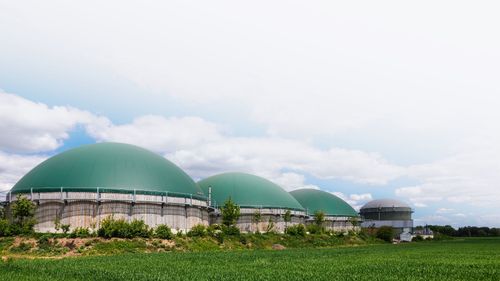
Assessing the Economic Viability and Environmental Benefits of Treating Organic Waste Using Anaerobic Digestion: A Case Study of Oko Oba Abattoir in Lagos, Nigeria (1 FILE)
There is a significant untapped opportunity for increasing waste diversion from final disposal sites in Nigeria, which can extend the lifespan of local dumpsites, promote a circular economy, reduce emissions, and improve local air quality and public health. This case study demonstrates the economic viability and environmental benefits of diverting organic waste to on-site anaerobic digesters, and the potential to scale such projects by describing project operations, assessing business-as-usual and alternative scenarios, identifying key challenges and barriers that inhibit project scaling, and providing recommendations that could address these challenges.
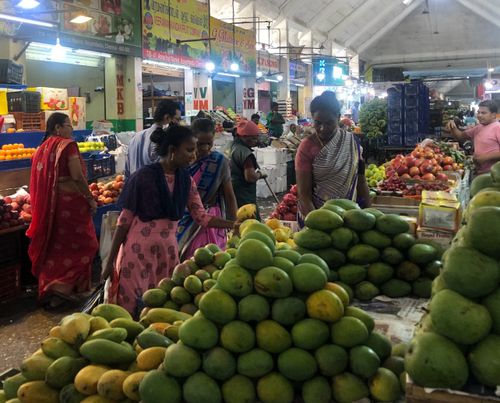
Assessing the Economic Viability and Environmental Benefits of Treating Market Waste Using Anaerobic Digestion: A Case Study of Koyambedu Market in Chennai, India (1 FILE)
There is significant potential to increase waste diversion in India, which can extend the lifespan of disposal sites, advance a circular economy, reduce emissions, and improve air quality and public health. This case study explores multiple scenarios to highlight the economic viability and environmental benefits of diverting organic waste from Koyambedu Market to a planned anaerobic digestion facility. It also identifies best practices to enhance market waste management, including strategies to treat hard-to-digest feedstocks.

Supporting US Cities in Securing EPA Funding to Enhance Municipal Solid Waste Recycling and Improve Solid Waste Management (1 FILE)
In 2024, RMI served as subject matter experts in a bootcamp series organized by the National League of Cities and Local Infrastructure Hub to assist US cities in preparing compelling applications for the Environmental Protection Agency’s Solid Waste Infrastructure for Recycling (SWIFR) Grant for Communities. This article shares key insights from the bootcamp, which highlights the need to strengthen local government capacity for identifying projects that improve municipal solid waste management and preparing grant applications, as well as the ongoing need for technical assistance during project implementation.
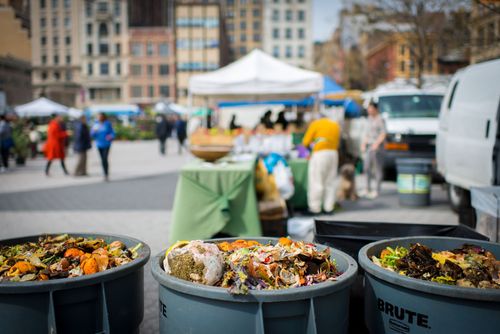
LOW-Methane Data Strategy: Unlocking Action Through Waste and Methane Data (1 FILE)
The LOW-Methane Data Strategy is designed to unlock action on methane mitigation from organic waste by improving data collection, analysis, and application to help address existing data gaps and perceived financial risks that have hindered effective action and investment. This strategy outlines a structured approach to data-driven decision-making in methane mitigation, which includes three phases – quantifying the problem, quantifying the solution, and tracking implementation and progress.
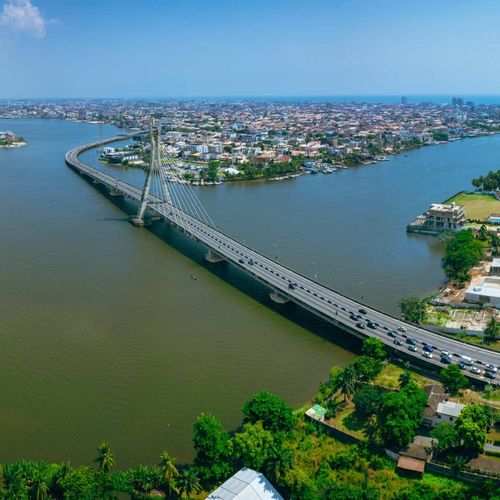
Lagos LOW-M Portfolio (1 FILE)
The LOW-M initiative collaborates with select subnational jurisdictions in tailored ways, with portfolio development being a crucial step. Lagos's LOW-M portfolio outlines targets, priority goals and actions. The principal LOW-M target is to reduce waste disposal methane emissions at least 30% by 2030, and priorities include dumpsite closure and expanding organic waste treatment capacity.
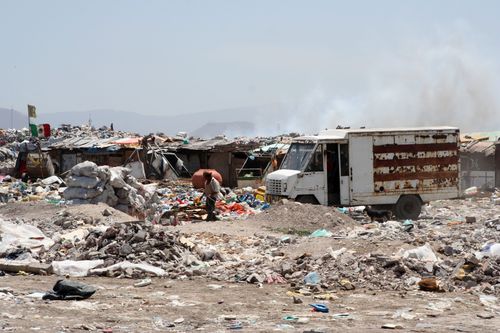
Jalisco Landfill Gas and Emissions Modeling Report (2 FILEs)
This report summarizes the results from modeling landfill gas potential of three final disposal sites within the State of Jalisco, the third largest generator of municipal solid waste in Mexico. The document also highlights different opportunities for Jalisco’s Ministry of Environment and Land Development to minimize methane pollution from these sites based on their diverse conditions.
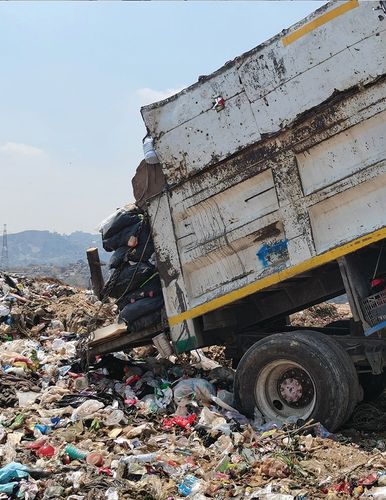
Evaluation of Greenhouse Gas Emissions from the San Mateo Final Landfill and Organic Waste Treatment Through Anaerobic Digestion (2 FILEs)
This study assesses emissions from the San Mateo disposal site, located in the municipality of Naucalpan de Juárez in the State of Mexico. The study also includes an evaluation of options to divert organic waste from the disposal site and an estimation of resulting greenhouse gas emissions reductions.
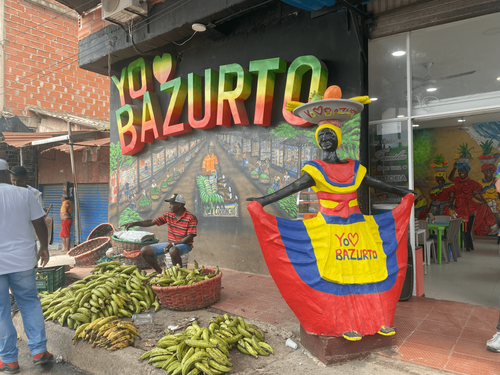
Prefeasibility Study: Organic Waste Treatment System for the Bazurto Market in Cartagena, Colombia (2 FILEs)
In Collaboration with the Mayor’s Office of Cartagena, this report includes the results of a prefeasibility study aimed at evaluating the viability of a comprehensive organic waste treatment system in Cartagena’s Bazurto market. The study delves into the financial long-term viability of an anaerobic digestor and evaluates impacts of financing schemes, waste tariffs, and capital expense discounts, as well as identifying a pathway for the implementation of the recommended waste treatment system. This study demonstrates that treating market organic waste via anaerobic digestion is a viable option and would improve overall waste management for the municipality. Furthermore, other benefits to this project include a longer landfill lifetime, reduction of energy costs for market venders, and mitigate 466 metric tons of CO2e per year.
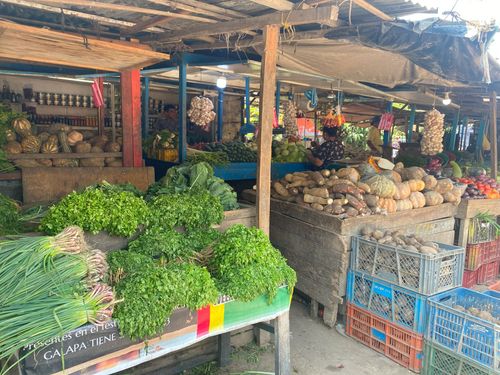
Prefeasibility Study: Organic Waste Treatment Systems from Marketplaces in Barranquilla, Colombia (2 FILEs)
In Collaboration with the Mayor’s Office of Barranquilla, this report includes the results of a prefeasibility study aimed at evaluating the viability of a comprehensive organic waste treatment system in Barranquilla’s marketplaces (i.e., Barranquillita, Playón, EPM, and Gran Bazar). The study delves into the financial long-term viability of an anaerobic digestor and evaluates impacts of financing schemes, waste tariffs, and capital expense discounts, as well as identifying a pathway for the implementation of the recommended waste treatment system. This study demonstrates that treating market organic waste via anaerobic digestion is a viable option and would improve overall waste management for the municipality. Furthermore, other benefits to this project include a longer landfill lifetime, reduction of energy costs for market venders, and mitigate 287 metric tons of CO2e per year.
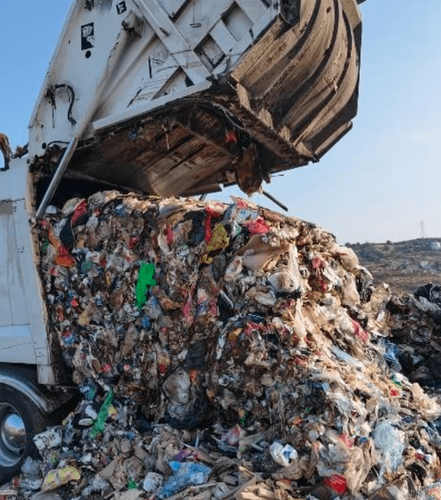
Quantification and Characterization of Waste Disposed at the San Mateo Sanitary Landfill in the municipality of Naucalpan de Juárez, State of Mexico (2 Files)
This report includes results of a waste characterization study conducted in collaboration with the municipality of Naucalpan de Juárez, Mexico, in May 2023. The study contributes new insights into the landfill’s composition of MSW and identifies trends in waste composition relative to 2017 study conducted by the US Environmental Protection Agency. This initiative is part of an effort to update data needed to support decision-making on proposed organic waste treatment technologies in Naucalpan. (Full report in Spanish; summary for decision makers in English.)
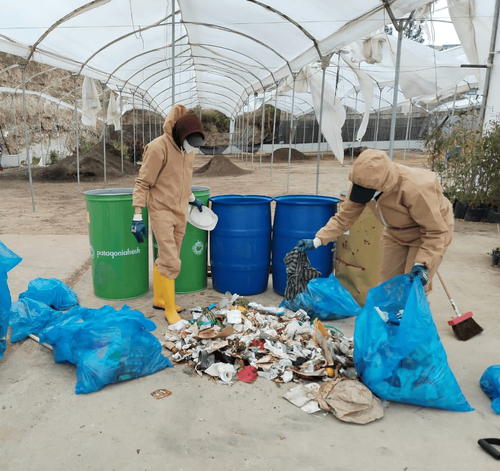
Development of a Pilot Study for Waste Characterization in the Municipality of Cayambe, Ecuador (2 Files)
This report includes results of a waste characterization study conducted in collaboration with Ecuador’s Ministry of Environment, Water and Ecological Transition (MAATE) in the municipality of Cayambe in July, 2023. The methodology, developed by MAATE’s Soid Waste Management and Inclusive Circular Economy Project (GRECI in Spanish) and piloted in this study, is expected to inform a national guide on waste characterization to be published by MAATE. (Full report in Spanish; summary for decision makers in English,)
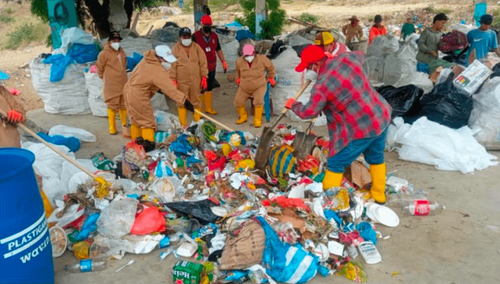
Development of a Pilot Study for Waste Characterization in the Municipality of Puerto López, Ecuador (2 Files)
This report includes results of a waste characterization study conducted in collaboration with Ecuador’s Ministry of Environment, Water and Ecological Transition (MAATE) in the municipality of Puerto López in August, 2023. The methodology, developed by MAATE’s Soid Waste Management and Inclusive Circular Economy Project (GRECI in Spanish) and piloted in this study, is expected to inform a national guide on waste characterization to be published by MAATE. (Full report in Spanish; summary for decision makers in English.)
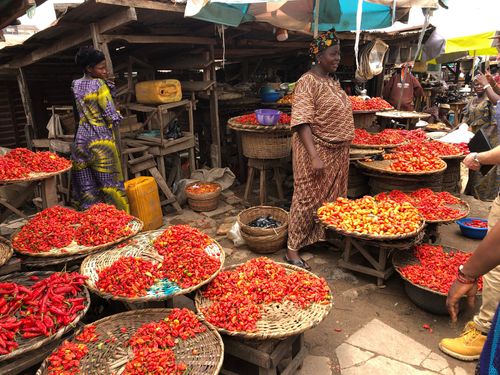
Considerations for the Treatment of Organic Waste from Lafenwa Market, Abeokuta, Ogun State, Nigeria (1 File)
In collaboration with Ogun State Waste Management Authority, this memo summarizes the insights from a scoping study to evaluate treatment options for food waste in Lafenwa market, a major food and vegetable market in Abeokuta, the capital city of Ogun State located in Southwest Nigeria. The document provides recommendations for piloting a source separation of organics program at Lafenwa market and composting the segregated waste.
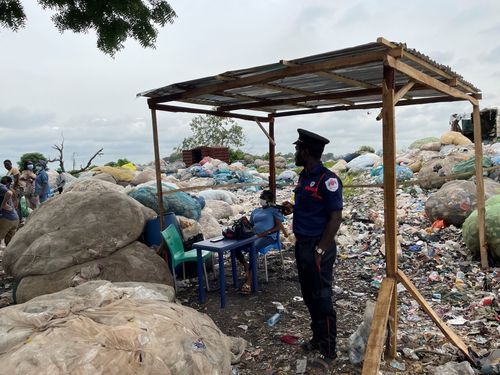
Recommendations for Operational Improvements at Oke-Saje Dumpsite in Abeokuta, Ogun State, Nigeria (1 File)
In collaboration with Ogun State Waste Management Authority, this document summarizes existing conditions and operations at Oke-Saje dumpsite in Abeokuta, the capital city of Ogun State located in Southwest Nigeria and offers near-term and long-term recommendations for operational improvements to promote the health and safety of the local community and reduce adverse environmental and climate impacts such as water ponding, slope stability, odor, fires, and methane emissions.